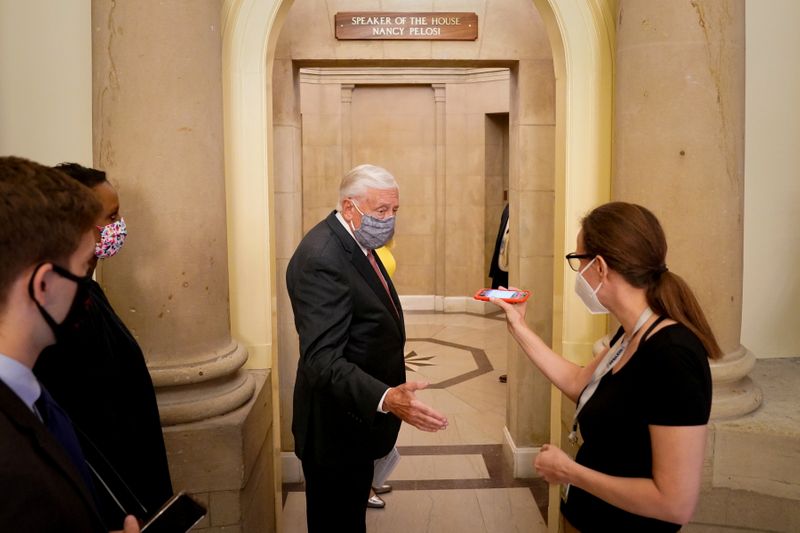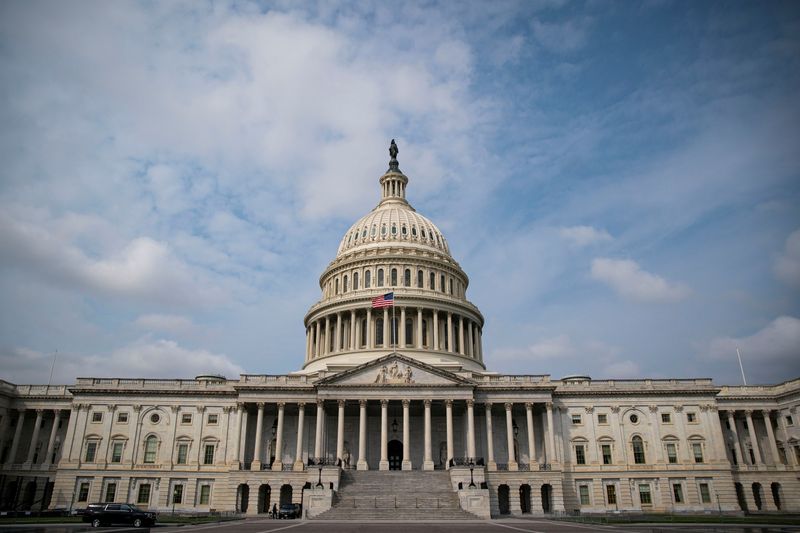By Susan Cornwell
WASHINGTON (Reuters) - The Democratic leader of the U.S. House of Representatives announced on Tuesday an agreement with Republicans on a stopgap funding bill to keep the government operating, with a vote expected later in the evening.
With government funding running out on Sept. 30, leaders of both parties have been working on legislation to continue funding most programs at current levels and thus avoid a government shutdown in the middle of a pandemic, and with the Nov. 3 elections fast approaching.
House Democrats announced Monday they had filed the stopgap funding legislation to last until Dec. 11, but they angered Republicans by leaving out some farm money that Trump wanted.
Democratic House Speaker Nancy Pelosi issued a statement announcing a deal with Treasury Secretary Steven Mnuchin and Republicans on the continuing resolution, or CR, which included the farm relief as well as nutritional assistance sought by Democrats.
"We have reached an agreement with Republicans on the CR to add nearly $8 billion in desperately needed nutrition assistance for hungry schoolchildren and families," Pelosi said in a statement.
"We also increase accountability in the Commodity Credit Corporation, preventing funds for farmers from being misused for a Big Oil bailout."
The version that House Democrats filed on Monday did not include the $21.1 billion the White House sought to replenish the Commodity Credit Corporation, a program to stabilize farm incomes, because Democrats considered it a blank check for political favors.
Trump, who faces a tough fight against Democratic rival Joe Biden in some farm states, had promised more farm aid last week during a political rally in Wisconsin, a key battleground state in the Nov. 3 elections.
Republicans had been furious at the omission. Senate Majority Leader Mitch McConnell said Pelosi's resistance to including farm aid in the bill had been "basically a message to farm country to drop dead."

The rest of the bill generally continues current spending levels. It would give lawmakers more time to work out spending through September 2021, including budgets for military operations, healthcare, national parks, space programs, and airport and border security.
